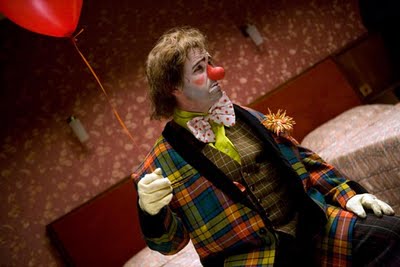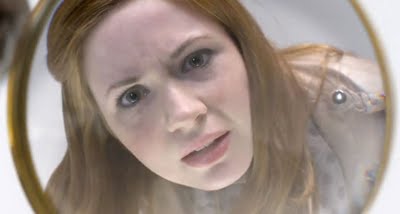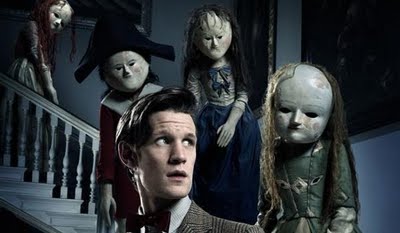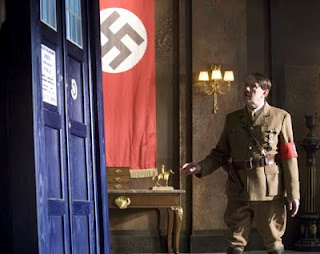Caleb Woodbridge reviews ‘The God Complex’, episode 11 of Doctor Who, a weird and twisted tale of nightmares and infinite corridors by Being Human scribe Toby Whithouse.
After last week’s excellent The Girl Who Waited, this keeps up the high standard with a neat psychological tale. Although last week’s events aren’t referenced directly, it certainly has an impact on the Doctor’s relationship with Amy and Rory. The Doctor’s fallibility comes under more scrutiny as the TARDIS team face their worst nightmares…
The Minotaur makes for a great monster, and there’s a strong guest cast, including David Walliams doing a typically Walliamsian turn as Gibbis, one of the most cowardly creatures in the cosmos. Amara Karan is the other stand-our performance, playing Rita, who I think is Doctor Who‘s first Muslim character (at least since the 1965 historical story The Crusade, which says a lot). Questions of faith form an important part of the story – it’s the most theological Doctor Who has been since The Satan Pit back in Tennant’s first series.
The nightmare hotel is reminiscent of Whithouse’s portrayal of Purgatory in Being Human series 3, which also featured people’s individual fears. It’s interesting that in telefantasy, Purgatory has become a place where characters go to “Face their Issues” rather than be purged of their sins: the afterlife adapted for the therapy age. That’s not what’s going on here though – we’re still firmly in science-fiction territory.
There are lots of easter-eggs for fans of the show, including blink and you’ll miss them glimpses of old monsters (plus a member of the production team!) There’s a sly link back to a Tom Baker era story, and a vital scene that echoes a moment in The Curse of Fenric.
It’s not as emotional as last week, but still a strong, moving and intelligent story. Check back on Saturday night for our podcast commentary on the show!






